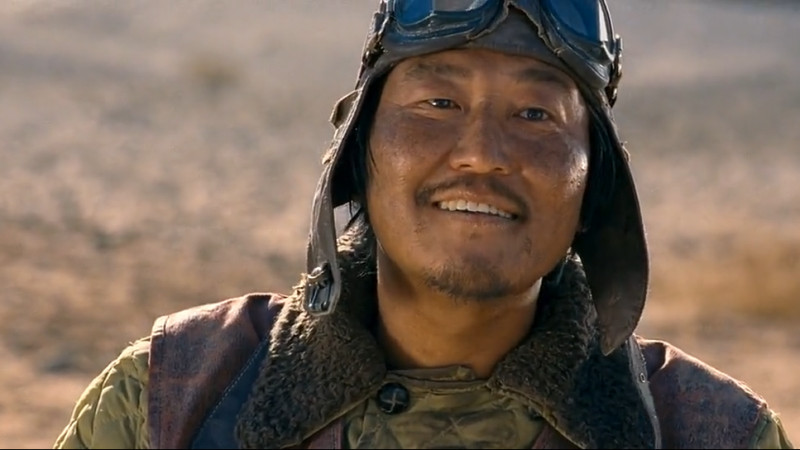
At the tail end of the 1990s and the beginning of the 21st century, the powers that be in Hollywood discovered something they hadn’t realised before. Which was that there was a real hunger amongst movie-goers to see effects-laden fantasy cinema that was based on prior cultural work. The X-Men, Harry Potter, The Lord Of The Rings, Spiderman, they were all responsible for huge box-office takings and the start of an era that would see the focus of auteur-driven projects being phased out in favour of blockbuster cinema.
So, with the era of Hollywood auteurism dying, other markets started becoming more noticeable to some more casual movie fans. One of those was the South Korean film industry. Though it had always been there, it had little attention from the west until the western cinema industry made it harder to make auteur-driven films.
In all that time since South Korea has never stopped making those kinds of movies and is now a respected hub of brilliant auteurism for the modern global film industry.
Whist Parasite was the first to get the hardcore recognition of The Academy, there were countless films that came before it that could have easily contended at the Oscars had they been spotlighted by Hollywood. Some of those films have been recognised in the years since; for example, Oldboy, A Girl At My Door, The Handmaiden, and Burning have all drawn a bigger audience worldwide post-Parasite and could have contended for major Hollywood accolades deservedly.
So, with South Korean films becoming ever more popular with major western audiences, here we take a look at 10 underrated gems from the South Korean film industry.
10. Veteran (2015)
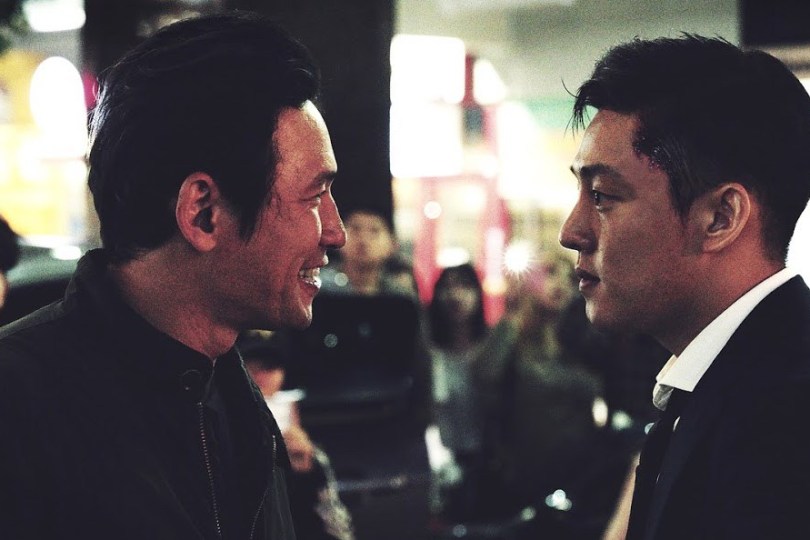
Action comedy is often so hard to get right because of the balancing act involved with tone. Too much exaggerated humour and it’ll appear too false, too much hardcore action and it’ll come across as a glorification of violence. Veteran, however, is a film that walks that balance perfectly. Never is it too gratuitous without justification, and never does it forget that it is blending a sharp comedic edge with its dark and gritty storyline.
Veteran follows a witty yet slightly unhinged cop who is seeking justice for a friend of his who has been savagely beaten and almost killed by a playboy-ish CEO slash gangster. As the game of cat and mouse unfolds, the cops and the gangsters are given equal time on the screen to bring themselves across as human beings, albeit ones with vastly differing moral standpoints.
The film does a great job at being relevant on so many levels of modern capitalist culture and features socialist themes mixed with capitalist overtones. It really strives to make a point about the difference between the rich and the poor within a large organisation, highlighting the nonchalant nature of those at the top to the genuine problems faced by those at the bottom.
The action sequences are very nicely choreographed, and the cinematography is complemented by the film’s striking use of colour. All of the lead performances are perfectly placed in a piece such as this and it often feels like Lethal Weapon in its tone, though Lethal Weapon was never as socially aware as this.
9. The Day A Pig Fell Into A Well (1996)
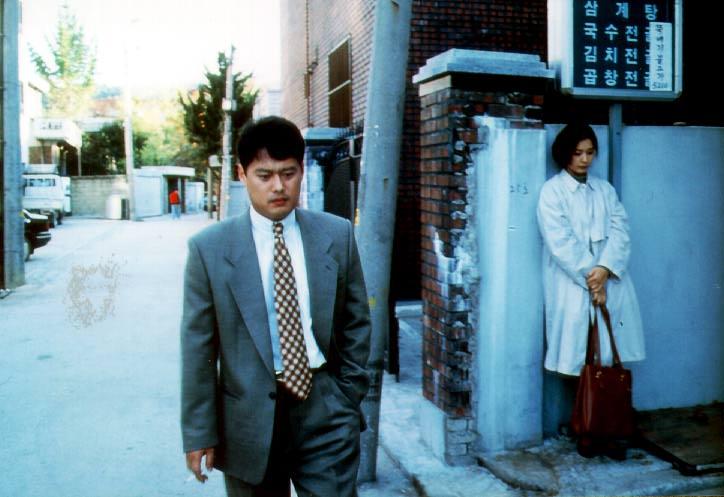
While the title may suggest otherwise, there are no instances of pigs falling into literal wells during the 2-hour run of the film. Instead, we’re shown four different narrative perspectives from four connected characters and their separate points of view.
The film is not one that showcases anything more than a staunch and depressing reality that brings its characters together out of their shared desperation to be loved. The tactile sense of being lost is compounded in each frame by every one of the four in some way as we witness their lives and the sparse moments of pleasure that they all seek.
The visceral use of sex is also one that marks the differences in the relationships between the characters; as their feelings toward one another are revealed bit by bit, the audience is given a physical manifestation of that emotion to cement just how each of them wants to be treated, or not, by their lovers.
As every one of the four characters in The Day A Pig Fell Into A Well slowly unravel through their own experiences and deep emotional turmoil, the title starts to make more sense. It comes to represent the hopelessness of being trapped in a metaphoric well, thrashing around, and feeling beyond help as you look out above you at the rest of society.
The use of neutral colours only serves to demonstrate how much the director Hong Sangsoo wanted the film to feel soulless & unhappy in all the right aspects, but without resorting to hyperbole in the process. It is because of that that this film, released in 1996, feels like it was an influence on some of Steven Soderbergh’s work in the early 2000s, narratively speaking.
8. Peppermint Candy (1999)
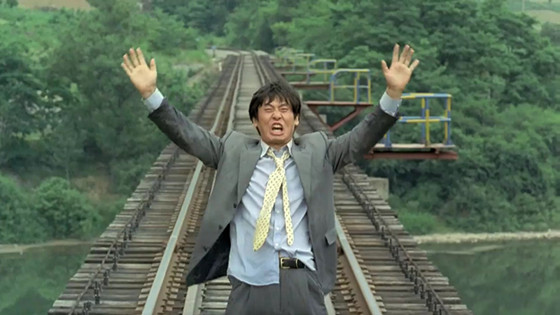
There are a great multitude of problems that any filmmaker faces when they start influencing the narrative structure of a movie. Chief among them is making sure that the film retains a coherent story arc without losing the audience to confusion. In this endeavour, Peppermint Candy is a unilateral success.
The film is told entirely backwards, and we start with the tragic suicide of lead character Kim Young-ho, as he stands in front of a train to the horror of several old friends at a reunion picnic. From there, the story takes us through the events of the past 20-years, and what has led him to his ultimate demise.
Peppermint Candy, at its core, is an erratic and intense character study that is unrelenting in the depiction of how regret and trauma can slowly wear down the soul of a person until they have pushed away everybody who even tried to care for them.
What is made clear from the outset is that Kim Young-ho is not a clichéd tragic character from a bad novel, he isn’t a good man with bad luck; if anything, he is a bully and a liar that uses violence and anger to control those around him.
It is this trait that makes Kim such an entertaining character, since it is a fundamental pre-set platitude for tragic cinematic leads to be redeemed in some way and therefore gain the sympathy of an audience. This isn’t something that can be said of Peppermint Candy, there is no redemption for Kim and his life is the result of his own actions and failure. Whilst it is made clear that he could have been a good man once, by the time we first see him at his death that chance had been spent a long time ago.
The lead performance by Sol Kyung-gu is exemplary and the cinematography feels like it served as a bridge between more traditional Korean movies and the modernisation of the 21st century. The use of colour is subtle but beautifully crafted as the film rolls backwards, and this is all brought together by the excellence of Lee Chang-dong’s intimate, yet manic direction.
Overall Peppermint Candy has a narrative structure that Christopher Nolan would be proud of, and a story that feels like it could have had a profound effect on Paul Thomas Anderson’s later work.
7. The Way Home (2002)
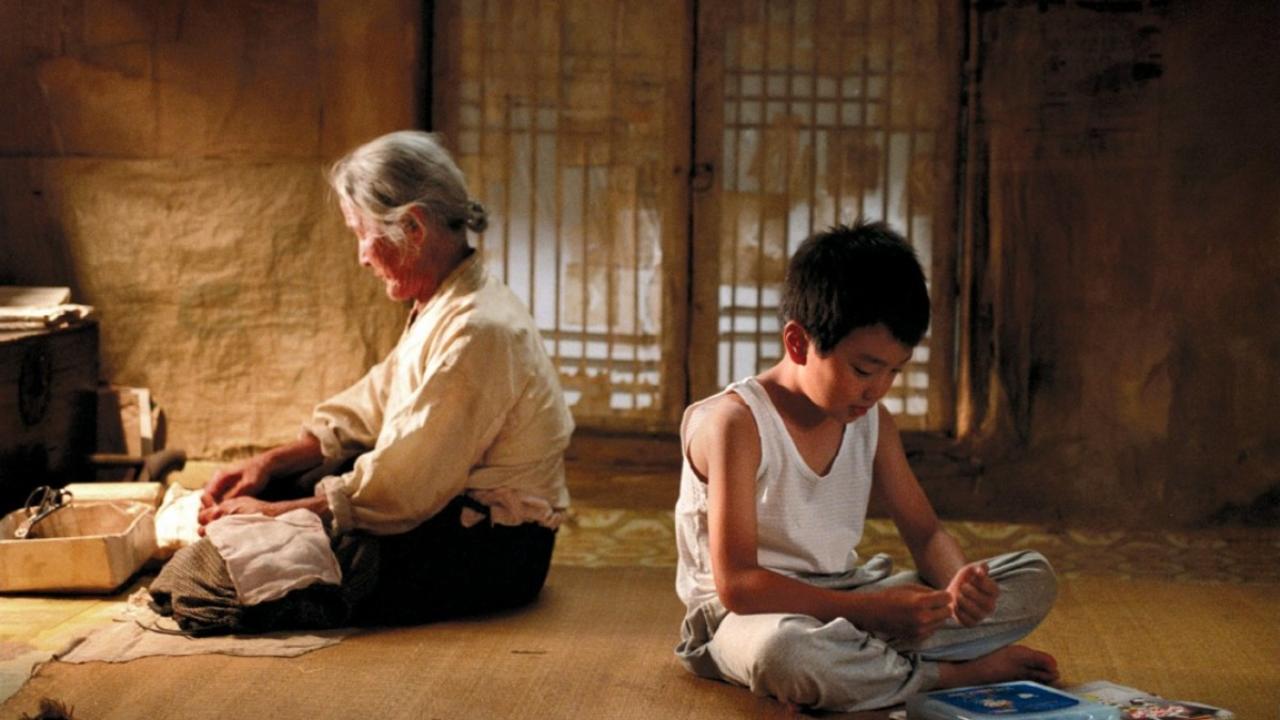
Keeping an audience entertained whilst both of your lead characters say next to nothing throughout is evidence of a rare gift, this is exactly what The Way Home is.
The plot is centred around a young 7-year-old boy called Sang-woo, who is sent to live with his ageing, mute Grandmother whilst his Mother looks for work. His Grandmother lives a simple life without electricity or running water in her home, which, for a modernised Seoul boy who spends most of his time with his Gameboy in his hands, is unthinkable.
Sang-woo is unruly and spoiled when he first reaches his Grandmother and is constantly misbehaving in attempts to get his own way, though she never punishes him for his behaviour, instead choosing to try and please him with simple methods.
The Way Home is a film that feels like a line drawn between the new South Korea and the old, being that the Grandmother would be old enough to remember the Korean war and the far more basic ways in which people of that generation lived. Whereas Sang-woo is a boy that is very much enjoying the fruits of the modern era, in that, he has a Gameboy, has never known water not to come out of a tap, and is used to living in the capitalist haven of Seoul.
What is seen in the film is the new slowly replacing the old, the erstwhile parts of Korea being lost to modernisation and rapid expansion. So, the dichotomy of the young Sang-woo and his Grandmother is fascinating to watch from a sociological standpoint; the way they gradually bond with one another, and how he learns of the importance of love over materialism, is as heart-warming as any tale you’re likely to see. For which the credit must go to the director/screenwriter Lee Jeong-hyang, and the way he deftly tells a simple tale without resorting to overly emotional platitudes.
To embrace the new is part-and-parcel for the world that keeps moving forward, yet to remember where we came from is equally as important, both on an individual and a social scale. This is what The Way Home is a reminder of, especially when it is told with such great dedication in the performances of Kim Eul-boon and Yoo Seung-ho.
6. New World (2013)
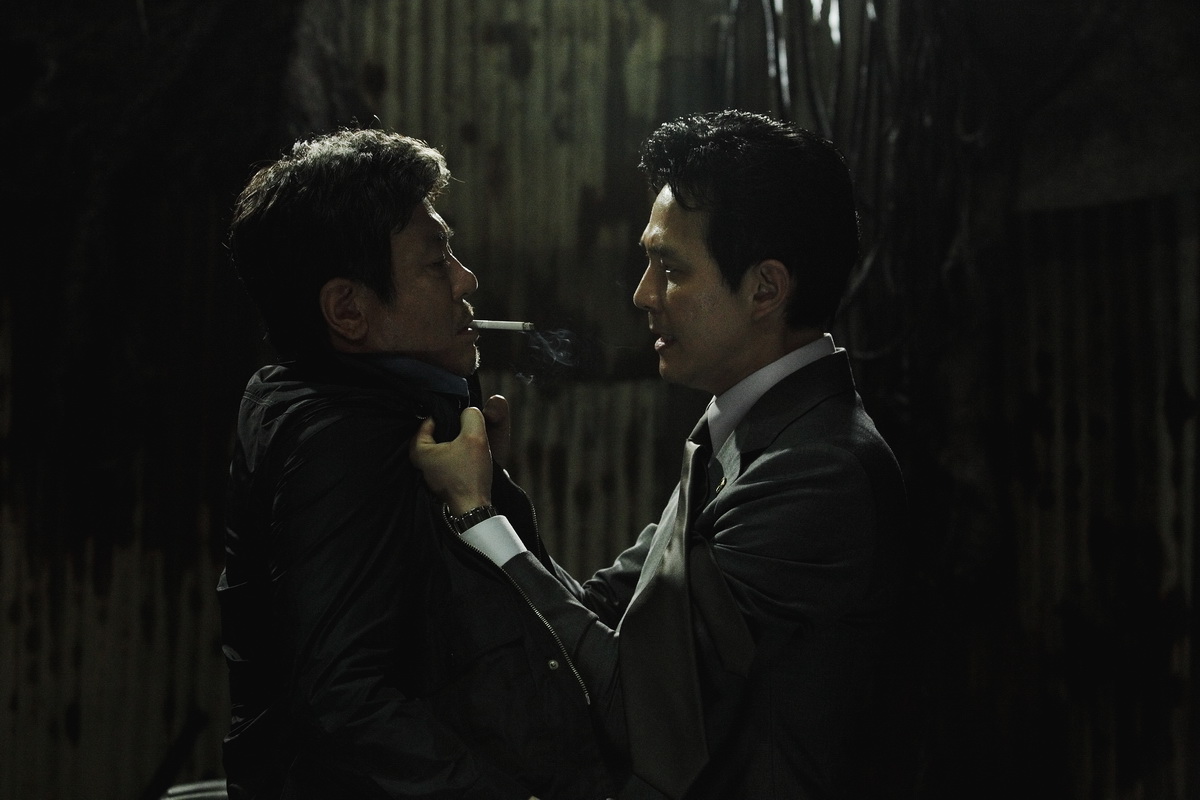
Gangsters and their organisation have long been a subject of great interest within the film industry. Martin Scorsese made a career out of telling the tales of violent mobsters and their cohorts, before going on to show his prowess elsewhere in the film spectrum; Korea is no exception to the fascination and has made many films that follow the exploits of a dark criminal underworld being pursued by the cops.
In New World, we follow Lee Ja-sung, an undercover police mole operating at the highest level inside a criminal organisation called Goldmoon, whose whole investigation is turned on its head when the leader of the criminal enterprise dies. It is this event that kicks off the power struggle by those who wish to be the new leader and how the factions mobilise themselves as quickly as they can to take command of the criminal empire.
The plot twists and turns with all the grace of a classic John Le-Carré novel, only revealing itself at the last moment for what it truly is.
New World with its mooted colours and intense gravitas never stops commanding your attention. It is a film that features a stunning script and brilliant all-around performances from the ensemble cast, as well as powerful direction from Park Hoon-jung. You can never feel at ease when watching Lee Ja-sung navigate his way through the snake pit of the Goldmoon organisation, whilst at all times trying not to get discovered as a mole by his peers.
The ending is genuinely nail-biting as the moral justification between the cops and the criminals becomes blurred, forcing Lee to make choices he never thought he’d have to make. In a lot of ways, this film feels like The Departed and The Godfather put together. Modern sensibilities aside, this is a classic cops-and-robbers-style film that features touchscreen phones and 21st-century cars.